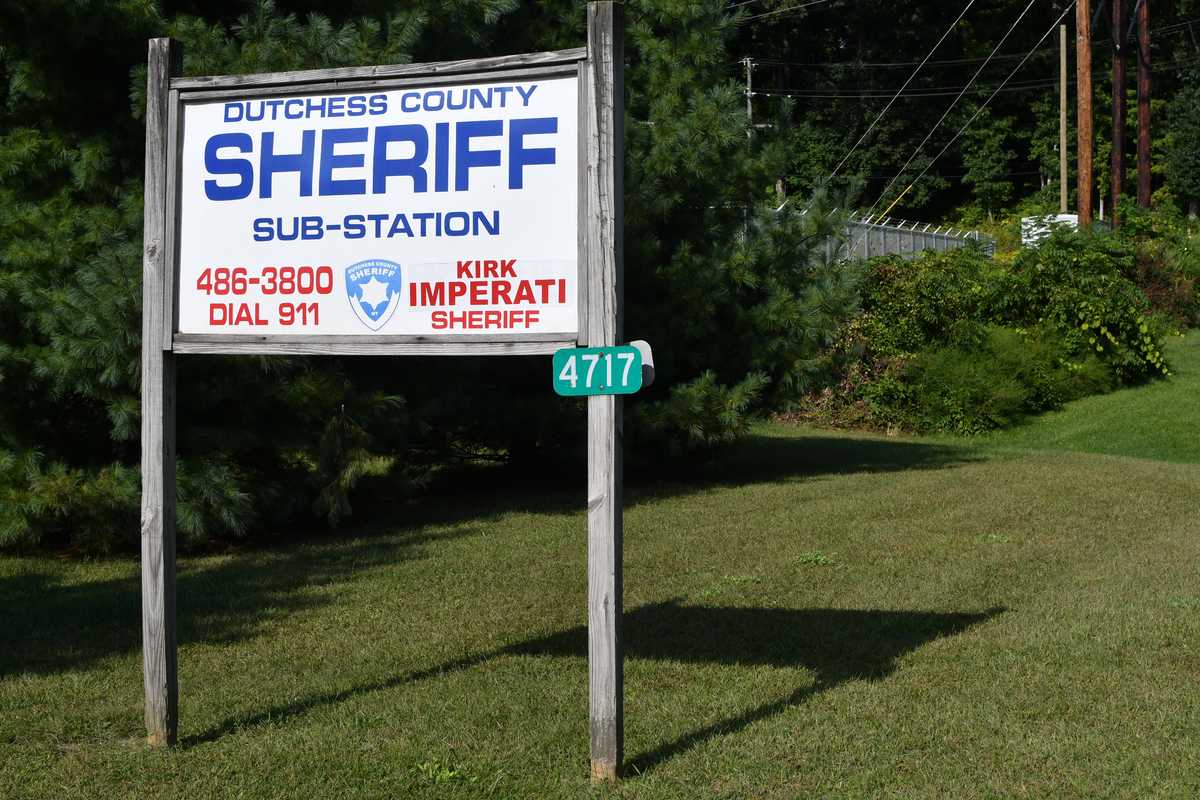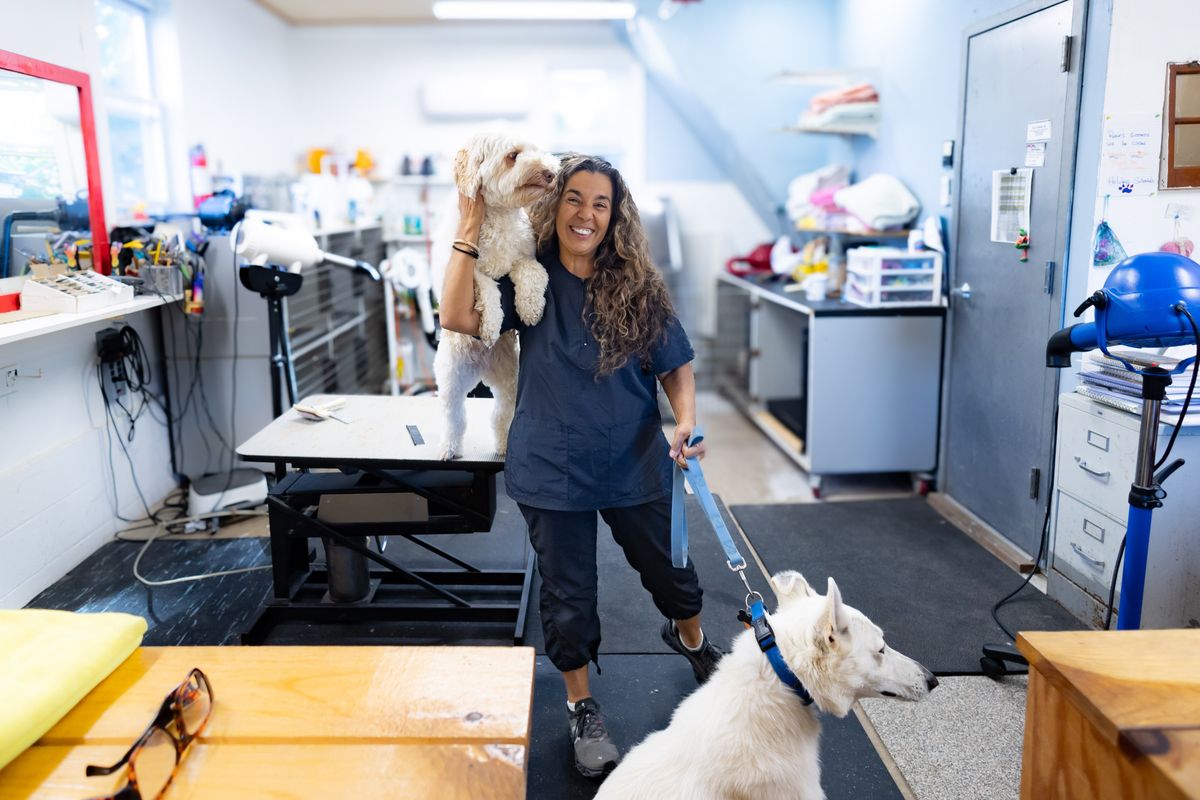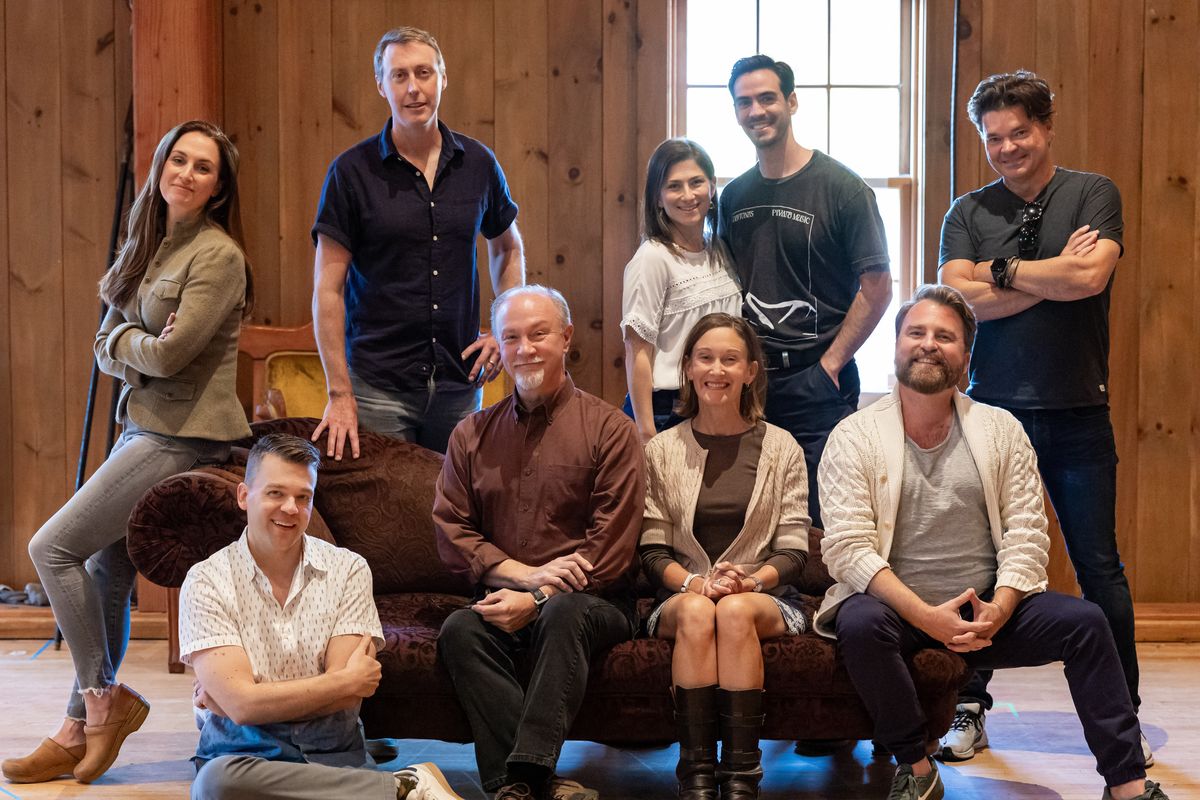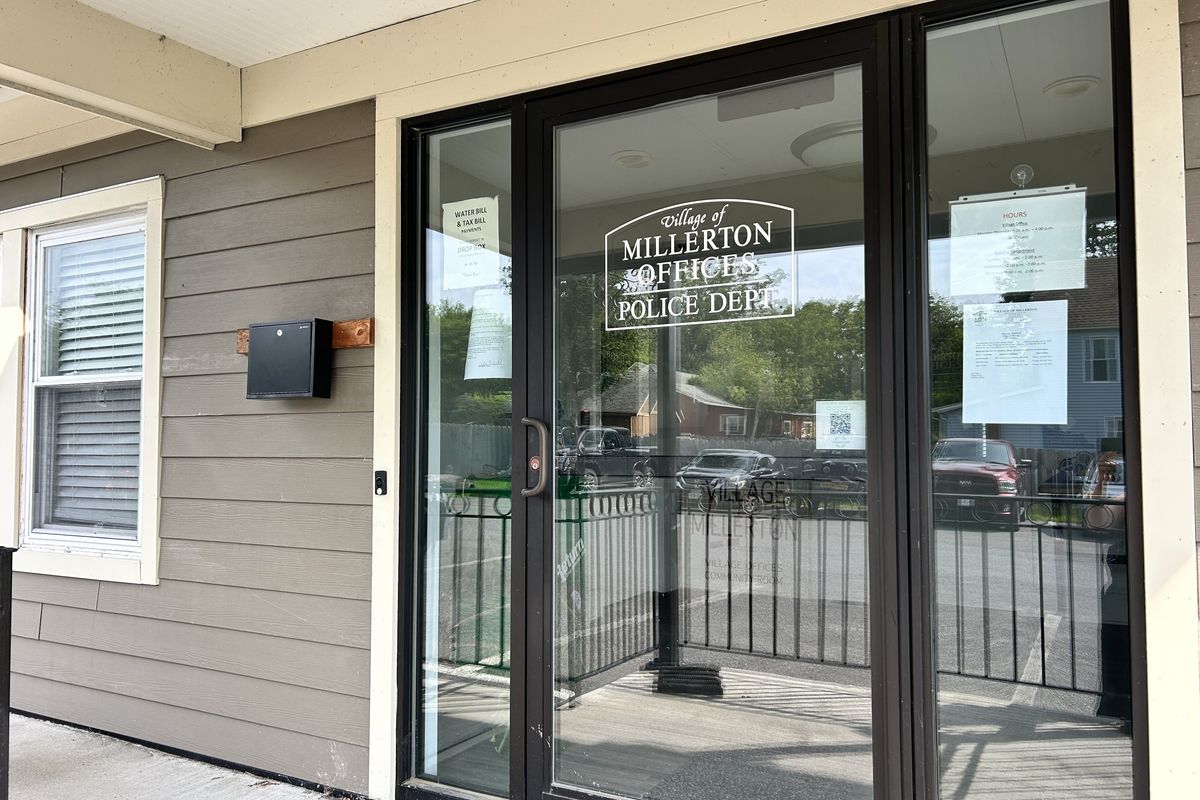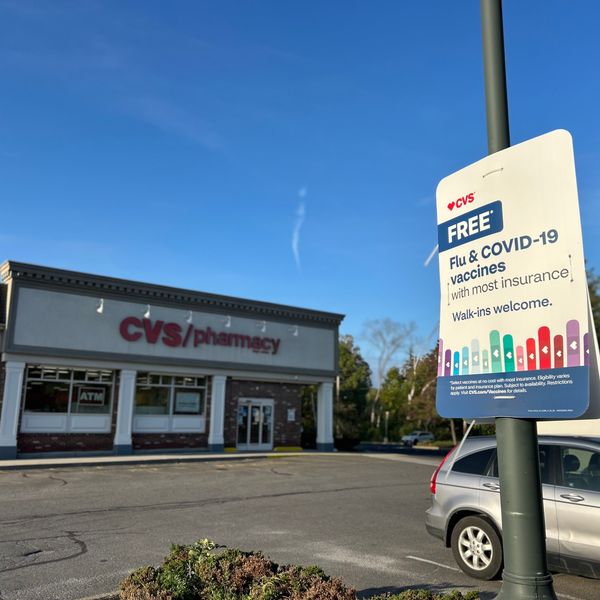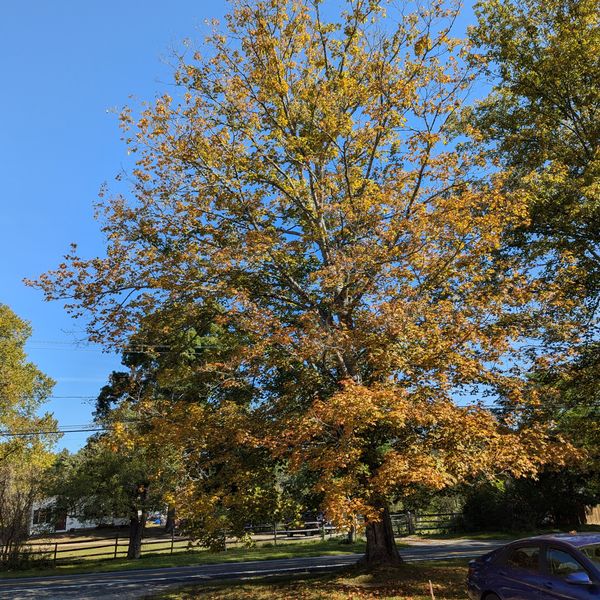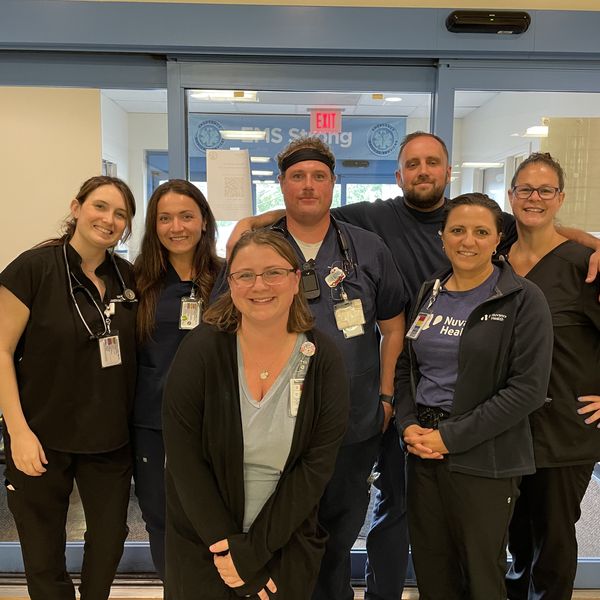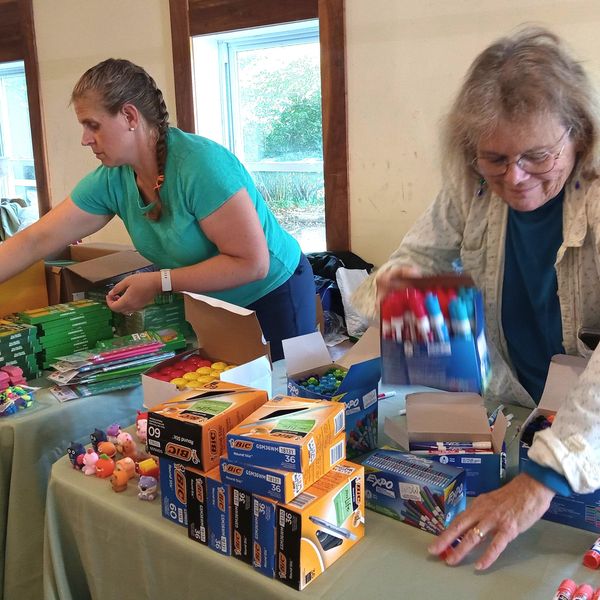Latest News
Millbrook day
Sep 24, 2025
One of the entries in this year’s Community Day Scarecrow Contest, Ichabod Hiccup, at left, seems to be particularly enjoying the solo performance of Wil Greenstreet, whose strolling pop-up saxophone performances delighted visitors to the village on Saturday, Sept. 20. For more photos, turn to Page A8.
Photo by Leila Hawken
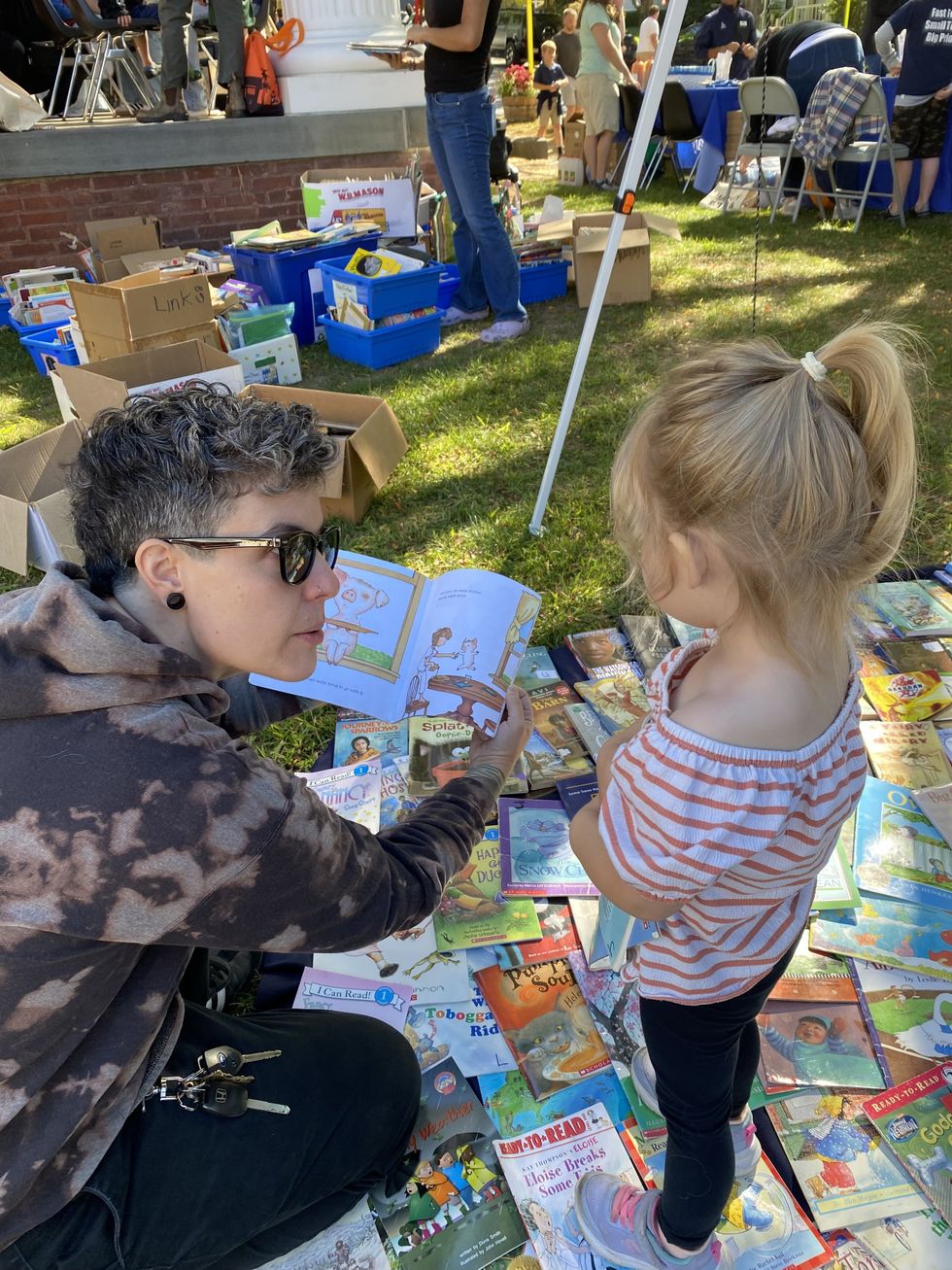
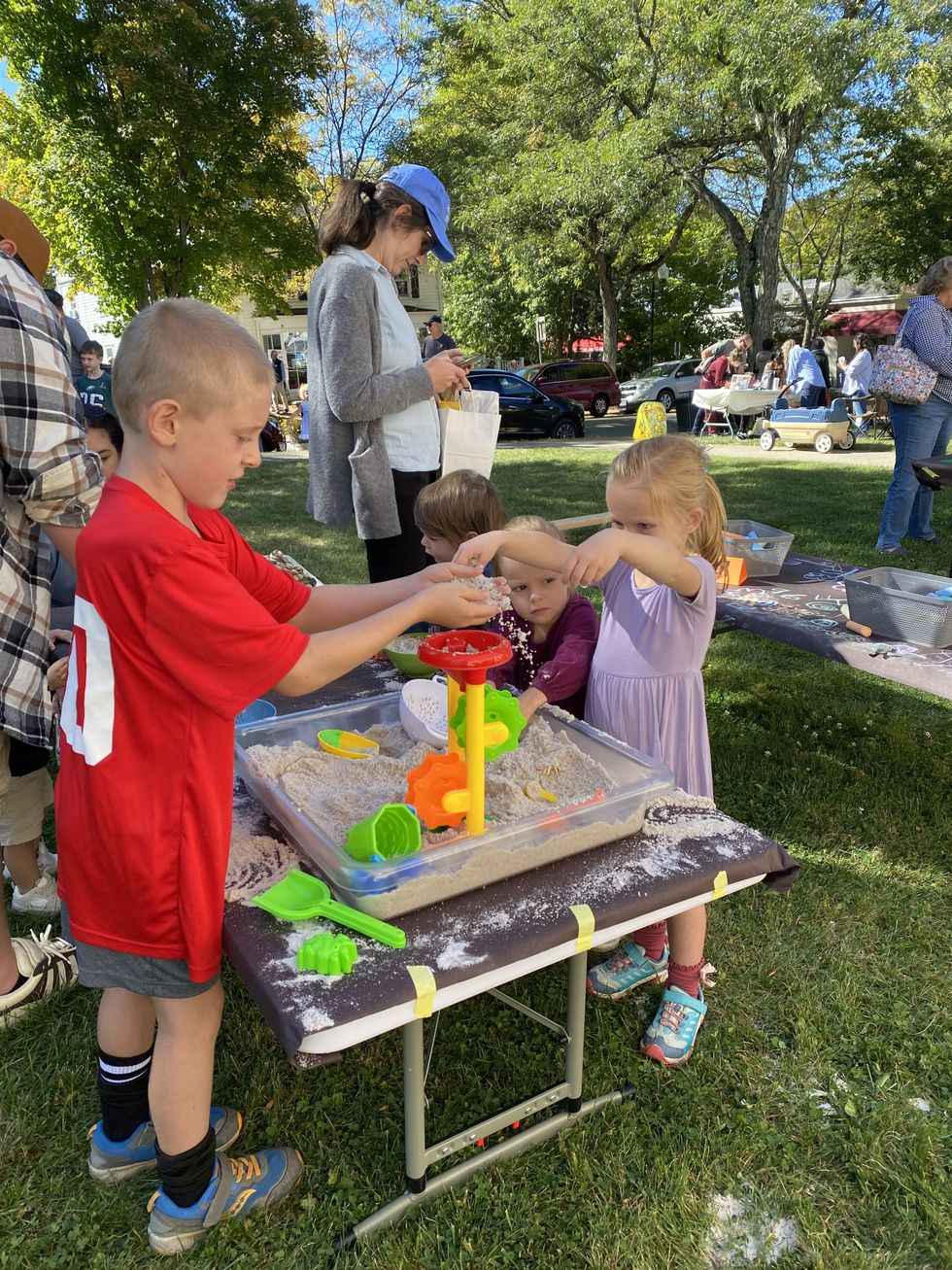
Keep ReadingShow less
Local talent takes the stage in Sharon Playhouse’s production of Agatha Christie’s ‘The Mousetrap’
Sep 24, 2025
Top row, left to right, Caroline Kinsolving, Christopher McLinden, Dana Domenick, Reid Sinclair and Director Hunter Foster. Bottom row, left to right, Will Nash Broyles, Dick Terhune, Sandy York and Ricky Oliver in Agatha Christie’s “The Mousetrap.”
Aly Morrissey
Opening on Sept. 26, Agatha Christie’s legendary whodunit “The Mousetrap” brings suspense and intrigue to the Sharon Playhouse stage, as the theater wraps up its 2025 Mainstage Season with a bold new take on the world’s longest-running play.
Running from Sept. 26 to Oct. 5, “The Mousetrap” marks another milestone for the award-winning regional theater, bringing together an ensemble of exceptional local talent under the direction of Broadway’s Hunter Foster, who also directed last season’s production of “Rock of Ages." With a career that spans stage and screen, Foster brings a fresh and suspense-filled staging to Christie’s classic.
The Playhouse’s casting includes Dana Domenick of Falls Village who leads the cast as Mollie Ralston, the newlywed innkeeper with a secret. Reid Sinclair of Norfolk plays Giles, her husband and partner in hospitality — and maybe in something more sinister. Will Nash Broyles from Lakeville plays the eccentric and enigmatic Christopher Wren, and Sandy York of Sharon will play the role of the imperious Mrs. Boyle. Dick Terhune (Litchfield), Caroline Kinsolving (Salisbury), Ricky Oliver (Pawling), and Christopher McLinden (also Lakeville) round out the cast as the play’s increasingly suspicious guests — and one very determined detective.
As always, Sharon Playhouse has gathered a top-tier creative team to match its cast. The Swader brothers (Christopher and Justin) return with their signature scenic designs, while Kathleen DeAngelis’s costumes and Bobbie Zlotnik’s wigs promise to anchor us firmly in postwar England, even as the plot spirals into timeless psychological suspense. Lighting by Wheeler Moon and sound design by Graham Stone will help turn the cozy theater into a stage crackling with tension.
If you’ve never seen “The Mousetrap,” here’s what you need to know: it’s the murder mystery that truly defined the genre. Premiering in London’s West End in 1952 and still running strong over 30,000 performances later, Christie’s ingenious puzzle unfolds in a snowbound manor house where everyone has something to hide, and no one is safe from suspicion. Its final twist is famously kept secret by audiences — a tradition of theatrical discretion that only deepens the sense of shared experience.
“The enduring success of ‘The Mousetrap’ lies in its suspense, yes, but also in its structure,” said the Playhouse’s Artistic Director Carl Andress. “It’s a masterclass in storytelling. And with Hunter Foster leading this incredible cast of local artists, we know our audiences are in for an evening of mystery, laughter, and yes, plenty of gasps.”
Tickets are available now at SharonPlayhouse.org.
Keep ReadingShow less
The Millerton Village Offices on Route 22.
Photo by Aly Morrissey
MILLERTON — As federal immigration enforcement continues to make national headlines, communities throughout the region are organizing to support immigrants, hoping to mitigate the effects of polarizing tactics. Millerton is home to one such group, which is finding its footing after a failed effort to gain legislative backing from village officials.
Established this spring, the Millerton group has been meeting privately to coordinate support for vulnerable residents. Some have referred to it as the “Millerton Neighbors Network,” though at least one source said the name has not been made official.
Citing concerns about drawing attention, several members declined to speak on the record. Aimee Davis, a North East resident and longtime Millerton massage therapist, agreed to comment. As part of her work with the group, Davis received “Know Your Rights” and rapid-response training from the Columbia County Sanctuary Movement, a New York-based organization providing support, resources and advocacy for immigrants throughout Columbia County.
“I can now be a point of contact for businesses or residents who want to know what to do if ICE shows up and they’re nervous about it,” Davis said.
Pushing for local policy
Some founding members were responsible for putting Immigrations and Customs Enforcement on the agenda at two public Village meetings, on May 21 and July 29. They urged the Millerton Village Board to draft a local law limiting police cooperation with ICE and protecting the constitutional rights of immigrants.
Attendance at the July meeting tripled and a divided community of supporters and critics attended to voice their opinions. Ultimately, the Board declined to move forward, citing concerns about losing funding for critical infrastructure projects and pointing to an already robust police policy.
This decision led the advocacy group to question whether the existing policy leaves room for additional protections or clarifications regarding immigrant rights.
Police policies and ICE
The News obtained a full copy of the 93-page Millerton Police Policy, which covers topics like patrol areas, decision-making, chains of command, use of force and use of non-lethal weapons, to name a few. The policy does not explicitly mention immigrants or immigration status.
The closest it comes to the advocacy group’s requests — requiring judicial warrants for ICE collaboration and not proactively sharing immigration data — is a section on racial profiling added in March 2023 and effective May 1, 2023.
“Racial profiling is a practice that offends fundamental principles of our Constitution … The Village of Millerton Police Department has an expressed prohibition against racial and ethnic profiling and is forbidden by all standards set forth by the municipality,” the policy states on page 68.
Redacted arrest records and incident reports from Jan. 1 to July 26, 2025, obtained by The News show that the department collects standard personal information, such as date of birth and address, but does not record immigration status in a way that could be shared with ICE. However, in two separate incidents, under sections labeled “Suspect” and “Missing/Arrested Person,” police captured ethnicity, which was listed as either “Hispanic” or “Not Hispanic.”
In a conversation with The Millerton News in August, Millerton Police Chief Joseph Olenik said he would not ask to see a judicial warrant before aiding in an arrest spearheaded by ICE.
“It’s their arrest, so to speak, and we would only be there as a supporting and assisting agency. We’re not there to second-guess their policies and procedures.”
He added that federal law supersedes state and local law, and “if ICE calls us for assistance and we are on duty — we are mandated to go.”
While Millerton Police show no sign of updating their policy, other agencies have. Beau Duffy, Executive Director of Public Information for the New York State Police, said they do have a policy on immigration matters.
“The New York State Police do not make referrals to federal authorities, nor do we detain a person or inquire about immigration status based on suspicion of civil immigration violations. Our members would only detain, arrest or make a referral to federal authorities if there was probable cause to believe a person has committed a criminal violation,” Duffy wrote in an email to The News.
The Hudson Police Department and Columbia County Sheriff’s Department have extensive policies, drafted in partnership with the Columbia County Sanctuary Movement, that address ICE head-on. The Hudson Police Department policy states that it prioritizes the health, safety and well-being of all community members.
“The Hudson Police Department has long determined that it will give full priority to public safety and justice concerns in preference to rigid enforcement of immigration regulations.” The policy states the department will not engage in certain activities solely to enforce federal immigration laws and will honor limited ICE requests with a judicial warrant, while “protecting the due process rights of persons as to whom federal immigration enforcement requests have been made.”
ICE spotted in Millerton
Some residents disagree with officials’ claims that a “problem does not exist” in Millerton. Speaking anonymously after the July 29 meeting, one witness reported seeing ICE vehicles outside a North Center Street home twice between June and early August. She described black SUVs with tinted windows and officers in black uniforms and duty belts, noting the outfits differed from local police uniforms.
“The officers did take two people from that house and put them into their vehicle. Whether they were released later, I don’t know,” she said.
While anecdotal, such incidents mirror a nationwide spike in enforcement activity. Community members are using training and rapid-response planning to ensure neighbors know their rights and that ICE operates within legal bounds.
Regional and national political debate
The Millerton discussion exists within larger regional and national contexts. As of Sept. 16, Connecticut has banned the use of masks “or other covering that obscures the face” by ICE agents while inside a courthouse. The same policy also prohibits arrests inside the public areas of a courthouse without a judicial warrant.
Connecticut Sen. Stephen Harding, a Republican, has criticized these policies, arguing they put undocumented immigrants — even those accused of crimes — before public safety. He described the state as a “sanctuary” for undocumented residents, saying Democrats have limited cooperation with ICE, even in violent cases.
He called the policy “Unbelievable and out of touch,” adding that “Republicans continue to fight to uphold our immigration laws while demanding safer streets and respect for the taxpayers’ money.”
Looking ahead: Local support networks
The Millerton group follows in the footsteps of similar organizations across the country, including nearby Vecinos Seguros 2 -— which translates to “Safe Neighbors” — in northwest Connecticut. Run by Jill Drew of Sharon, Connecticut, the organization provides training, develops local rapid-response teams, tracks nearby ICE activity and offers support ranging from legal to financial.
“Groups like mine don’t even have a website, and we try to stay under the radar,” Drew said. “At the same time, we want people to know we’re out here so families know there are safe neighbors.”
Last week, Vecinos Seguros 2 held a free public training at the White Hart in Salisbury, Connecticut, focusing on how to respond to ICE operations. The training was led by Berkshire Allies, the community wing of the Berkshire Alliance to Support the Immigrant Community — or BASIC. They shared tips on how to prepare for an ICE interaction, how to spot ICE, how to approach interactions carefully and how to film interactions legally for evidence — not for social media.
These types of local trainings connect like-minded residents, allowing them to feel proactive while potentially improving community safety.
“In this area, it’s hard to get the word out — most folks only hear about things through social media or a poster at the market,” said Aimee Davis of the Millerton group. “Everyone deserves protection, documented or undocumented, if they’re participating positively in the community. Advocating for people’s safety feels so important.”
Keep ReadingShow less
loading


